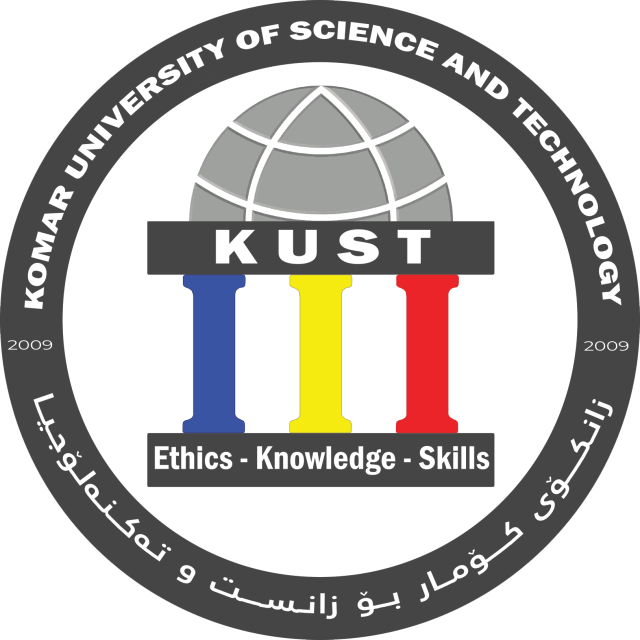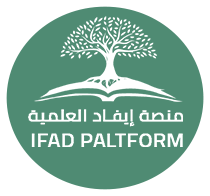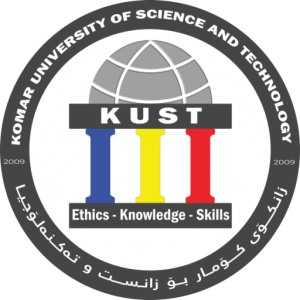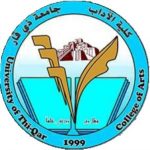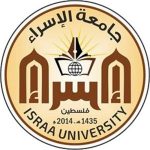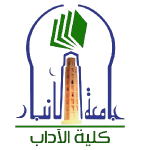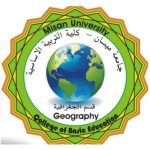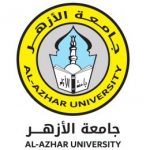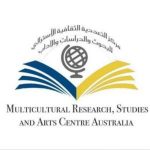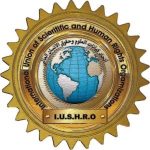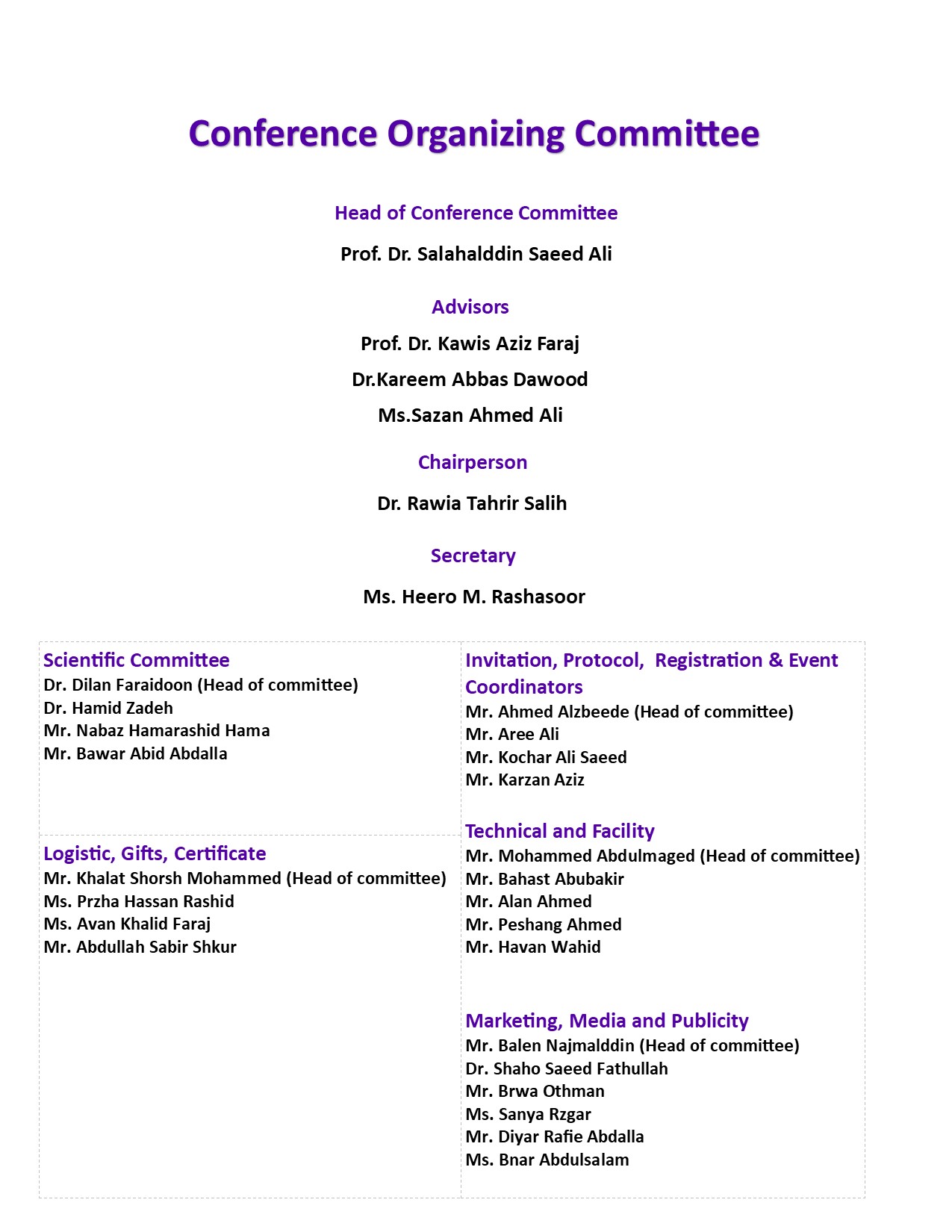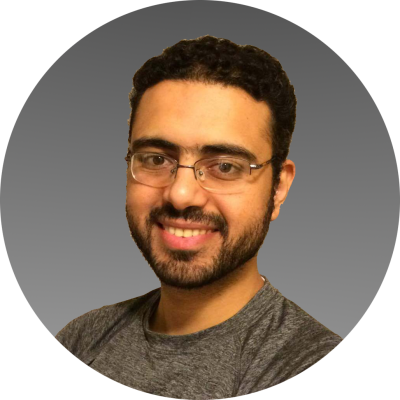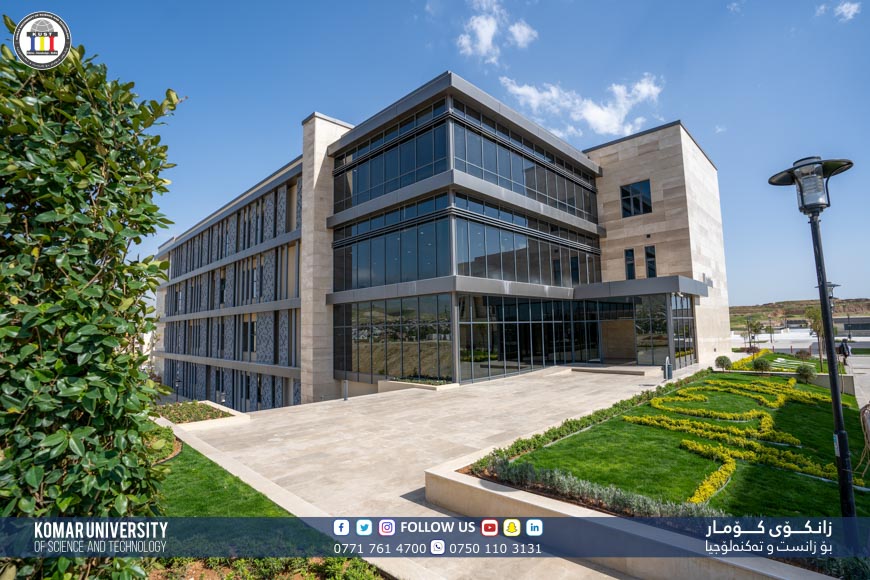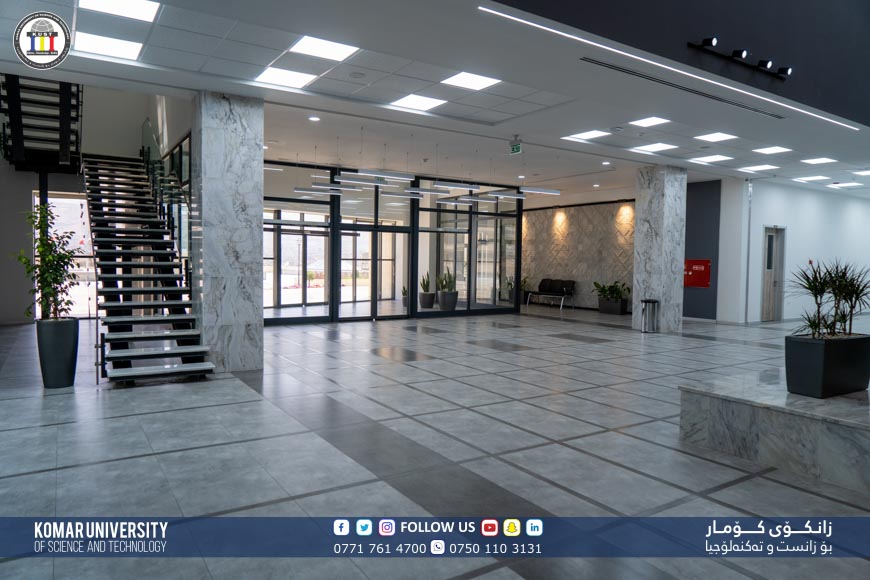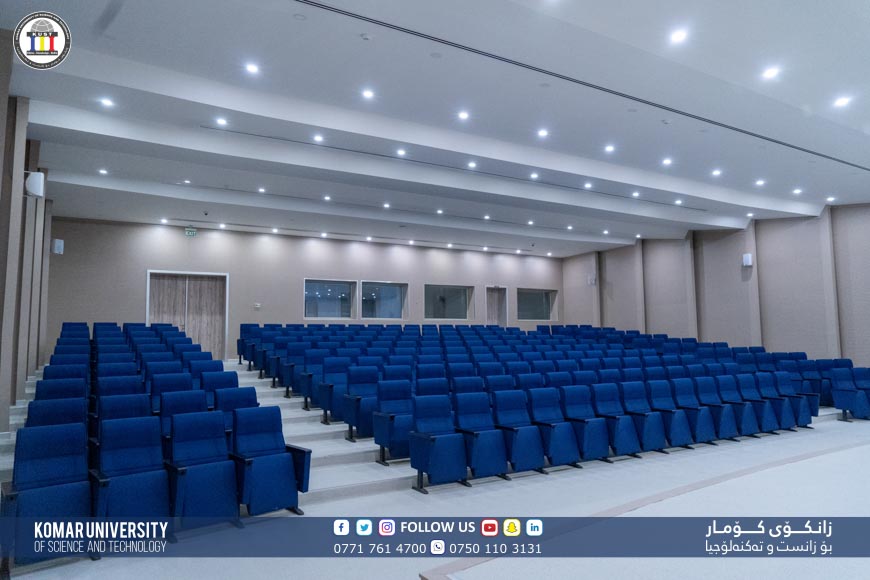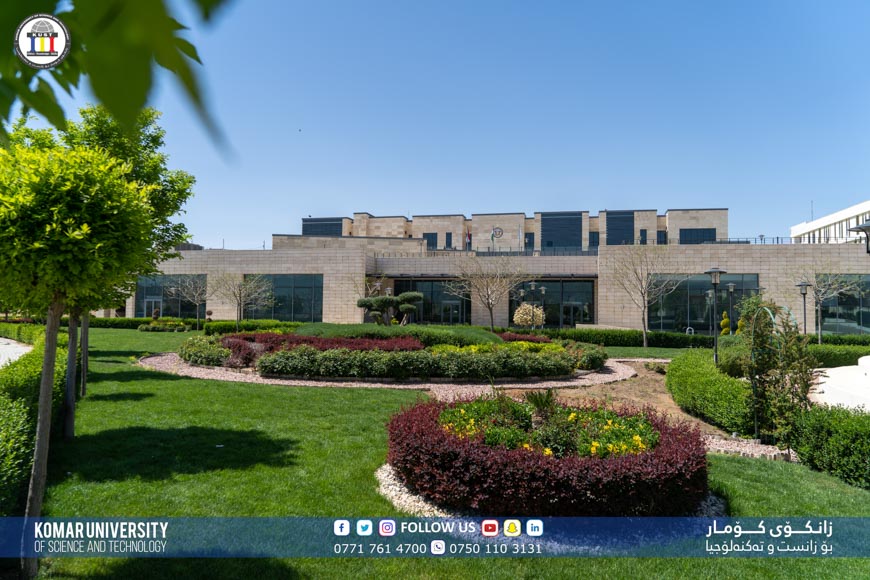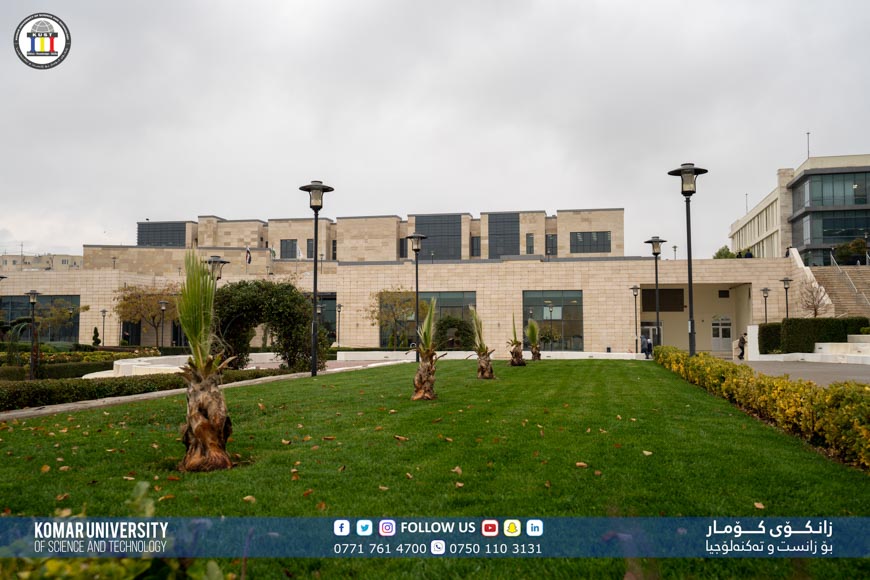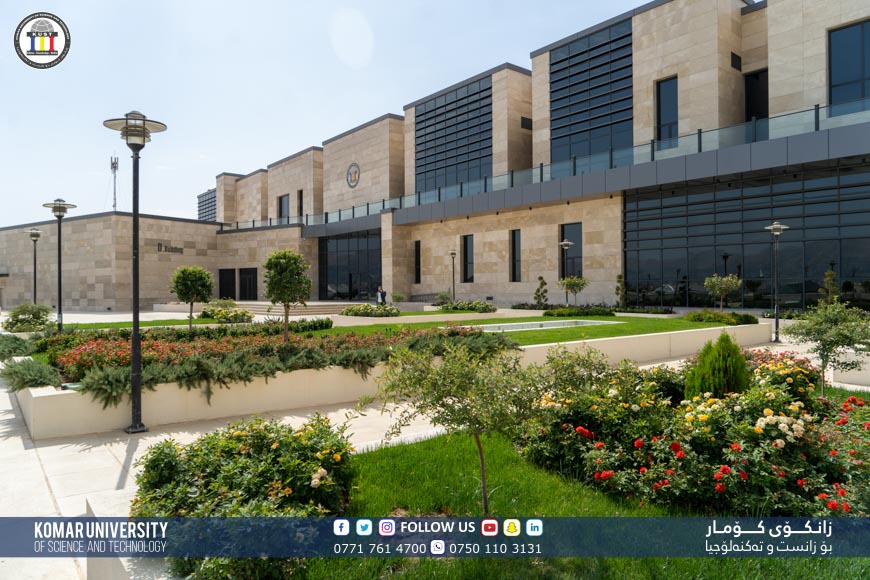Conference Preamble
In light of current regulations, publishing in international scientific journals has become a cherished requirement. Publishing in such journals has become an important necessity for academic promotions in universities. It opens new horizons for cooperation among international researchers, benefiting from experiences and skills, and communicating with them. Familiarizing oneself with the popular fields of scientific research in the world is one of the necessary requirements for economic, social and cultural advancement which benefits from the new methods and mechanisms of scientific research, and university rankings.
The scientific research centers have been entrusted with research achievements published in international journals that benefit researchers from all over the world. Therefore, the Preparatory Committee decided to make this the topic for this conference and its research activities in the hope of opening up prospects for publishing more research in these scientific platforms, while clarifying the caveats that may lead to waste. The researchers’ efforts are to make sure that the highest level of originality and research is achieved. The delegation of the scientific community has taken upon itself the development of scientific research and contributed to correcting its tracks. This conference calls for the hope that it will bear the desired outcome in facing the challenges. Enhancing data, assisting researchers, opening doors for them, facilitating their tasks, and directing the research compass to everything that is useful, legitimate and effective which is one of the factors of sustainable and continuous development.
Conference Objectives
- Expose the obstacles that researchers face in the process of publishing stage of their research
- Providing clear recommendations that guide researchers and academics in the publishing phase
- Contribute to opening new horizons for cooperation between researchers and the exchange of research experiences and skills
- Familiarize oneself with the methods and mechanisms of new scientific publishing.
- Unveiling the caveats that lead researchers to wasted efforts to publish on international platforms.
- Ensuring that published Arabic research achieves the highest levels of scientific quality to achieve its desired goals.
- Helping researchers and facilitating their task in the publishing process and directing their compass to everything that is valuable and influential.
The conference will be held on the campus of Komar University of Science and Technology in person and online via the Zoom program
About Komar University of Science and Technology
Komar University of Science and Technology (KUST) in Sulaymaniyah was founded and licensed by the Ministry of Higher Education and Scientific Research in the Kurdistan Region of Iraq, and Iraqi MOHEs on October 18, 2009. KUST is a private university governed by a Board of Trustees and administered by its University Council. Its main campus is located in the city of Sulaymaniyah, in Kurdistan, Iraq. It is currently at an exciting stage of its development.
KUST’s vision is to achieve a high rank as an academic institution within Kurdistan Region and Iraq by serving the community through the application of advanced science and technology and by contributing to the development of the nation.
KUST’s mission is to contribute to the advancement of society within the fields of knowledge, science and technology by empowering its students to play an active role in this regard and to lead influence the next generation.
KUST achieves its mission by fulfilling the following objectives:
-
- Create an environment where knowledge and skill in science and technology could be shared and transferred
- Create an environment that enhances critical thinking and effective friendly faculty-student interaction
- Prepare students for a variety of career paths in science and technology based on international standards and accreditation
- Encourage collaboration with private institutions and the government to improve academic learning standards and to meet the needs of public and private sectors alike 5. Provide professional services and consultation to the public and private sectors
- Support developments and innovations in science and technology to improve quality and boost standards in the region and in Iraq
- Promote professional and ethical conduct within the community
Conference scope covers, but not limited to, the following topics:
- Track 1: Education, Teaching, Learning, Humanities & Social Studies.
- Track 2: Finance, Business, Management, Economics & Accounting.
- Track 3: Contemporary Pedagogical Approaches.
- Track 4: Science and Emerging Technological Trends.
- Track 5: Biomedical Sciences and Health Informatics.
- Track 6: Automation Science and Engineering.
- Track 7: Mathematics Science and Technology
Record Attendance
للتسجيل باللغة العربية اضغط هنا
Registration and paper submission
| CATEGORY | IN PRESENCE | ONLINE |
| Attending the conference WITHOUT certificate | Free of charge. | Free of charge. |
| Attending the conference WITH certificate | $10 | $15 |
Paper submission fees
| CATEGORY | IN PRESENCE | ONLINE |
| All accepted papers will be published1. | $150 (250,000IQD) | $150 (250,000IQD) |
Note: The deadline for paper submission will be extended to 15 July 2023 for participants from KRG and the other cities of Iraq ONLY. However, the accepted paper will be Published ONLY if at least one of the authors comes and presents the paper by him/herself IN-PRESENCE in the RCRT conference at Komar University of Science and Technology (KUST), exclusively. If the none of the author mange to presented in-person, the payment will not be refunded.
| CATEGORY | IN PRESENCE | SUBMISSION FORM |
| All accepted papers will be published1. | $150 (250,000IQD) | Click Here |
Footnotes:
1: All accepted papers will be published in the special conference proceeding issue at Q2 journal “Turkish Online Journal of Distance Education (TOJDE)” indexed in (Web of Science) and SCOPUS
Payment Procedure
Dear Participant, for the payment process, you must follow these steps:
-
-
- Transfer Details
- Bank Name: ALTAIF Islamic Bank
- Account Name: Harez Omer Ali
- Transfer From/to:
Transfer From Transfer To Account Name Transfer Through Accepted Currency Kurdistan Region/IRAQ 078400505160022517000 Harez Omer Ali Maroof Ali ALTAIF IQD International 00962797205750 Abdallah Mohammad Saleh Alshanty Western Union $ ملاحظة:
1- تسديد رسوم الأشتراك عن طريق الحوالة حصرا، اما الطرق الأخرى كالأيداع غير متوفرة وغير مقبولة.
2- الرجاء الأنتباه الى كتابة اسم المستلم بطريقة صحيحة كالتالي (هە ریز عمر علي معروف علي أو Harez Omer Ali Maroof Ali).
3- اي خطأ في كتابة الأسم فلن نتمكن من استلام الحوالة وبالتالي نخلي مسؤوليتنا ويتحمل المرسل كامل المسؤولية.
- After the money has been successfully sent through the bank, you must send us the following information
through the form we have provided in the Participation section:-- Remittance Code
- Remittance Number
- After you have successfully completed the previous step, the money will then be credited to our account and
your process will be completed. - All the amount of payment excluded the transaction fees
- Transfer Details
-
Please make sure you have followed this process completely, in order to subscribe to the
service.
If you have any problems with this process, please call one of the following phone numbers:
+964 770 543 2083 (Kurdish)
+964 770 853 1016 (English – Arabic – Kurdish)
OR
Contact us through the following email:
- rcrt_reg@komar.edu.iq
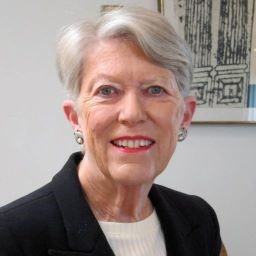
Mary Oakes Smith (Ms)
AUIS Board of Trustees and IWFF founder and president, USA
Ms. Mary Oakes Smith was the founder and president of the Iraqi Women’s Fellowship Foundation that brought women faculty in the sciences and technology to top U.S. universities for up to one academic year. The fellows returned to their Iraqi universities with cutting edge knowledge in their fields, as well as new teaching and research technologies. The program established cultural exchange and long-term relationships between the fellows’ home and host universities. In 2022, she closed the program, giving the residual in finance to the American University of Iraq, Sulaimani (AUIS), where she is a member of the Board of Trustees. Her final Iraqi fellow completed a successful program at the University of Texas, MD Anderson, and gained a PhD in Iraq at the University of Sulaimani.
Smith has had a 30-year career with the World Bank, specializing in industry, energy, and telecommunications. She was senior manager of two major financial replenishments for the International Development Association, achieving $31 billion in total funding. She was appointed by UN Secretary General Kofi Annan to the Advisory Board for the Fund for International Partnerships, guiding the development of strategic frameworks and funding for children and health, women and population, the environment, and peace and human rights. She is a member of the Advisory Council of the UN Association for the National Capital Area, and a member of the Bretton Woods Committee. She graduated from Smith College in political science. Several years thereafter, she graduated as a Sloan Fellow from MIT’s Sloan School of Management, and served as a member of the Sloan School Board of Governors for several years.
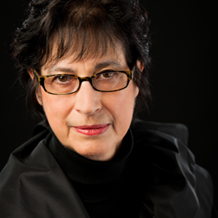
Madelyn Blair (Ph.D.)
Speaker, bestselling author, TV host, resilience mentor, and Pelerei co. founder, USA
Dr. Madelyn Blair is a business owner, speaker, author, television host, and resilience mentor specializing in resilience at every level. She hosts a television show called Unlocked with Dr. Madelyn Blair. It is dedicated to helping listeners discover the secrets to building resilience into their lives, their organizations, their communities by opening possibilities. She mentors individuals one on one and in group settings to enhance their ability to succeed through developing the characteristics of highly resilient people identified through her research.
She has written several books including her latest book, Unlocked: Discover how to embrace the unexpected (attaining #1 bestseller international), Essays in Two Voices (being used on four continents), and Riding the Current: How to deal with the daily deluge of data. She has contributed to many others such as Smarter Innovation and Wake Me Up When the Data Is Over. She writes a blog, entitled Resilient Leadership, for Psychology Today. She is a former faculty member at Columbia University and former Division Chief at the World Bank.
In 1988 she founded Pelerei, a consulting firm which specializes in helping organizations thrive in the midst of disruption. Over the years, she has been privileged to work with wonderful people and organizations, including NASA, the Regional Chamber of Cincinnati, Merck Pharmaceuticals, Walden University, Brookings Institute, Huawei Technologies, AARP, ABERJE of Sao Paulo, European Investment Bank, NIH, IMF, American University, PwC and other international and private organizations. Her webpage can be viewed at madelynblair.com. Her education began in mathematics and now includes a PhD in sociology with emphasis in organizational psychology.
Dr. Haitham Seada is the lead data scientist on Ford Motor Company’s vehicle routing solution “Symphony”. He is a Computer Science major with a master degree in Bioinformatics and a PhD in Evolutionary Multiobjective Optimization. After his PhD, Haitham joined Kim Boekelheide’s lab at Brown University as a postdoctoral research associate, where he developed computational pipelines to process and analyze high throughput cell culture imaging data. His current role at Ford involves creating optimization models and algorithms for vehicle routing problems and architecting software wrappers to the developed techniques. His research interests involve vehicle routing, non-linear optimization, computational intelligence, linear modeling and machine learning, as exhibited in his list of publications. For more than 8 years, Haitham used to teach a diverse selection of computer science topics to both undergraduate and graduate students at several private and public sector universities and institutions. He is also the author of several software libraries, both closed and open source, spanning a wide range of technologies.
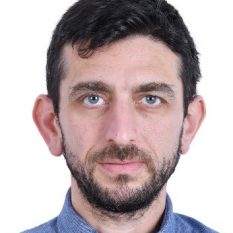
Aws Zaidan (Ph.D)
Professor in Data Science and AI at SP Jain School of Global Management, Australia
A.A. Zaidan is Full Profesor in Data Science and Artificial intelligence at SP Jain School of Global Management, Sydney, Australia. His extensive research experiences in multidisciplinary that focuses on intensive data science and analysis, with a focus on two fundamental concepts; (A) multi-attributes decision-making and optimization techniques (B) traditional machine leaning and deep-learning techniques. By relying on this, his research mainly focused on different disciplines of emerging technologies. on this basis, he formulated and developed variety Softwares intelligence based-under Fuzzy Environments; (Fuzzy Decision Making, Fuzzy Systems, and Fuzzy Set Theory) in: (1) Cyber Security, (2) Healthcare Services and Biomedical informatics (3) Image Processing, (4) Computer Networking, (5) Internet of Things, (6) Marine Science, (7) Transportation, (8) Agriculture/Aquaculture, and (9) Linkage between Digitization, Sustainability and Circular Economy domains. He is published more than 270 papers at International Journals and Conferences (85%> in Q1 ISI WOS Top 25% journals in that subjects) including 5-10% of the field. Accumulative citations= 13,566 & H-index=69. Secured 6 Millions and 176k USD from 15 research grants inlink with industries in between (International, internal, or external). Registered 16 Intellectual Property (Patents) for Industrial Research Projects. Won 12 Awards at international competitions in between 2014-2022 including (6 Gold, 5 Silver, and 1 Merit). listed among World’s Top Computer Scientists at 2022 and 2023.
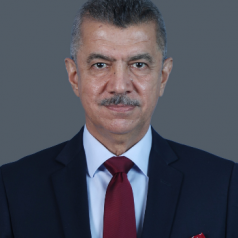
Ahmed Saeed Mohammed (Ph.D)
Assistant Professor in database and security systems and director of the Information Systems Division at Ahmed Bin Mohammed Military College, Qatar
Dr. Ahmed Saeed Mohammed is an assistant professor, director of the Information Systems Division, and a project manager for building and developing information systems – from idea to planning, implementation, management, and operation – at Ahmed bin Mohammed Military College in Qatar. His research area focuses on data mining, databases, computer-aided learning, and allocation problems. Additionally, he has developed many educational applications and received numerous honors and appreciation certificates from different institutions inside and outside the country for his contributions in developing, implementing, and training staff in educational information systems and blended learning.
Dr. Ahmed has extensive experience in teaching system analysis and design, databases, software engineering, computer networks, strategic planning of information systems, software project management, and programming languages of all kinds at the University of Baghdad, Al-Mustansiriyah University, the University of Technology, and Al Rafidain University College.
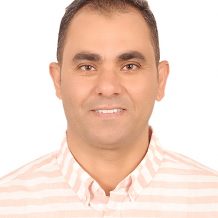
Mostafa A. Elhosseini (Ph.D)
Professor in AI, robotics, and metaheuristics at Taibah University, Saudi Arabia.
Dr. Mostafa A. Elhosseini is an esteemed professor of Computer Science and Engineering at Taibah University, situated in Yanbu, Madinah, Saudi Arabia. He is a distinguished alumnus of Mansoura University, Egypt, holding a B.Sc. in Electronics Engineering, and both an M.Sc. and Ph.D. in Computers and Control Systems Engineering from the same institution.
Dr. Elhosseini’s extensive research on artificial intelligence (AI), robotics, and metaheuristics is highly acclaimed, with over 70 articles and research papers published in top-tier journals. His primary research interests include AI, machine learning, deep learning, non-invasive computer-assisted diagnosis systems, computer vision, and bio-inspired optimization algorithms.
A Senior Member of the Institute of Electrical and Electronics Engineers (IEEE), Dr. Elhosseini’s significant professional experience and accomplishments in the field of engineering and technology are evident. He has served as a guest editor for prestigious journals and on the international program committees for numerous international conferences and journals.
Dr. Elhosseini’s contribution to the field of computer science and engineering is far-reaching, extending beyond academic research. As an accomplished content creator on YouTube and Udemy, he shares his expertise with a broader audience, offering insights into AI, machine learning, deep learning, non-invasive computer-assisted diagnosis systems, computer vision, and bio-inspired optimization algorithms.
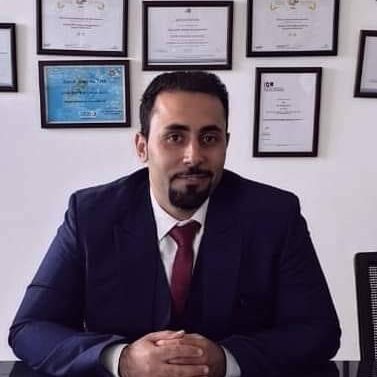
Abdallah Mohammad Saleh Alshanty (Ph.D)
CEO of IFAD Platform & academy and lecturer in Business intelligence at Faculty of business administration, Arab University, Jordan
Lecturer and academic in the field of strategic management and business intelligence. Founder and CEO of IFAD platform Holds a Ph.D. in Strategic Management from the American University of Cyprus
Faculty member in the Department of Business Administration at the Arab University College of Technology in the Hashemite Kingdom of Jordan. Executive Director of the platform for researchers and academics – IFAD. Worked in the application of the international program of the British International Pearson in the Department of Business Administration and Accounting. Participated in the framework of planning and managing educational facilities.
A consultant for the application of ERP systems in the health sector in Jordan for 8 years. researcher and business analyst for quality systems and planning.
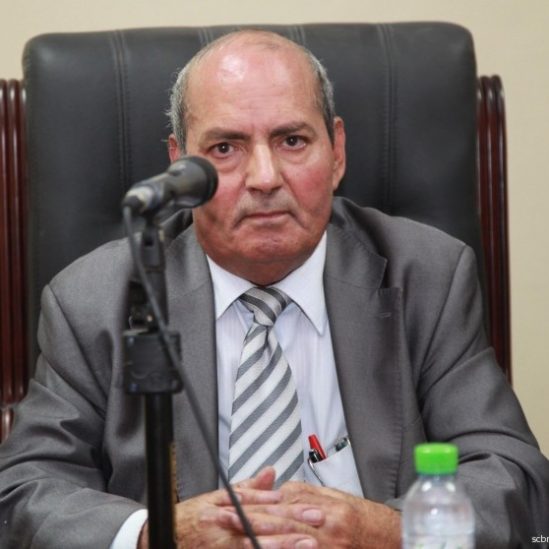
Mohammad Saleh Alshanty (Ph.D)
Chairman of IFAD Platform and academy Professor in literary critic at Islamic University, Jordan
Literary critic and academic worked in several Arab universities Head of Department and Dean of the College of Literary and Linguistic Studies, then Dean of Scientific Research and Dean of the College of Arts and Languages Chairman of many development and educational committees and the development of courses and quality a visiting professor at the Islamic University in Madinah, which honored him with a number of shields on various occasions. Member of a number of advisory and editorial boards in a number of scientific journals in several Arab universities
worked as a member of the Judging Committee in the King Faisal International Prize 2001 He was selected as a member of the jury for the Al Owais Award in Dubai several times He was selected as a member of the jury in the Prince Abdullah Al-Faisal Award He wrote more than forty books, published dozens of approved scientific papers, and prepared many critical readings in various newspapers. a weekly critical column in Al-Yamamah magazine. editing weekly article in Al-Jazeera evening newspaper in the late eighties under the title Evenings.
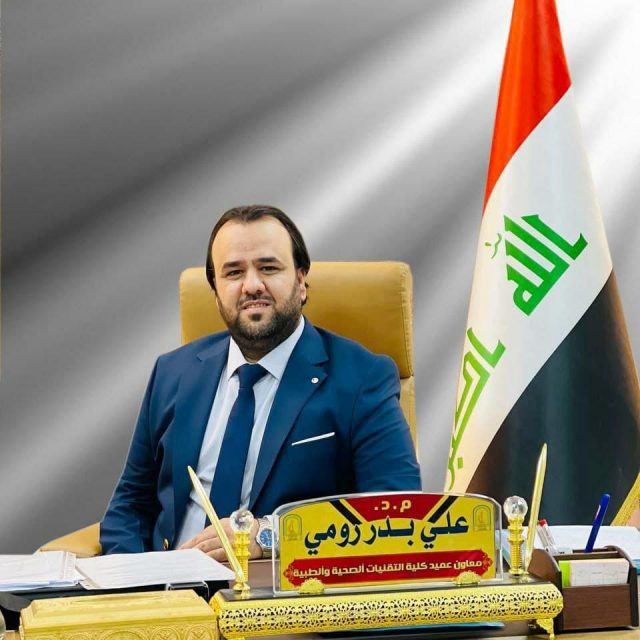
Ali B. Roomi
(Ph.D)
Director of QA at Thi-Qar University and Ministerial Committee Member for Strategic Planning in Higher Education Ministry, Iraq.
Ali B. Roomi received the B.Sc. degree in chemistry from Thi-Qar University, Thi-Qar, Iraq, in 2010 and the M.Sc. degree in Biochemistry from Thi-Qar University, Thi-Qar, Iraq, in 2013 and the Ph.D. degree in clinical chemistry from Thi-Qar University, Thi-Qar, Iraq, in 2019. His research interest includes
the development of chemistry, clinical chemistry, bone disease, and anti-oxidants. Dean of College of Health and Medical Technology (20/9/2021-2022), Co. Manager of Scientific Research Center (SRC), Al-Ayen University (23/3/2021-2022), Head of Department of Quality Assurance and University Performance in University of Thi-Qar (1/1/2022– preset) and Member of the Ministerial Committee for Strategic Planning in the Ministry of Higher Education and Scientific Research for the Scientific Research Team until 2031, Iraq. The number of papers published in Web of Science (WOS) and Scopus amounted to 31 articles. Reviewer in many journals in Web of Science (WOS) and Scopus. Editorial board in many journals in Web of Science (WOS) and Scopus.
Venue :
The conference will be held at Komar University of Science and Technology, D-Building, Conference Hall ,Qualaraisy, Sulaimani, Kurdistan, Iraq.
The Recommended Hotels
This hotel has especial discount for our participants.
- 77$ per night with breakfast included.
- More details about the hotel
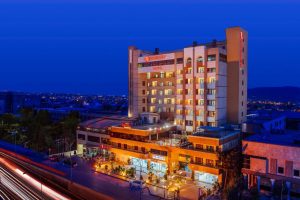
This hotel has especial discount for our participants.
- Single bedroom $45 for a night.
- Triple bedroom $65 for a night.
- More Details about the Hotel
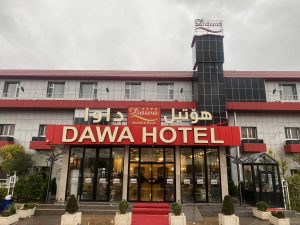
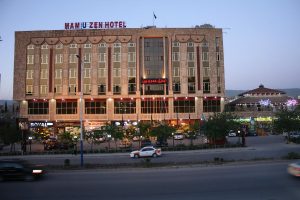

Paper submissions and reviews for RCRT2023 will be handled through the following Paper Submission form:
Guidelines Before submission
Manuscript length: 20 pages maximum, including figures, tables & references. This is a strict limit for the initial submission.
Double-blind reviewing: both the reviewer and author’s identities are concealed from one another throughout the review process.
Manuscript Style: the final accepted version should follow the style template of the special conference proceedings of “Turkish Online Journal of Distance Education (TOJDE)”. Please to download the template (Microsoft Word) click here and for the font style click here.
RCRT 2023 Ethical Requirements for Authors
The RCRT 2023 requires that all authors wishing to present a paper declare that:
The paper is substantially original and no paper, similar in content, has been submitted or will be submitted to any other conference or journal during the RCRT2023 review period. The paper will be presented by the author or a co-author in person or online. The RCRT scientific committee chairs retain the right to eliminate any papers violating these requirements.
Plagiarism Test Requirements
The overall similarity rate of a paper should not exceed 20 percent. However, the manuscript will be plagiarism checked again. The score and report are provided to assist you in revising your manuscript, if necessary.
Recommendations for Revising Manuscript
You must remove, replace, rewrite, redraw the content (text, figures, tables) if any, from already published sources. Nothing is to be done on “References” section.
Paper Reviewing Steps:
- After receiving the paper, the author will get submission approval, and the first round of paper review will start.
- The reviewing decision will be sent back within 21 days to the corresponding author.
- If the paper is accepted with corrections, the author will receive an email from the scientific committee; The manuscript must be revised and sent back within 5-7 days.
Conditional acceptance:
All accepted papers (after the review cycle) will be on conditional status until fulfilling the following requirements:
- Paying the publication fee of $150 (excluding transaction fee) to cover processing and publishing costs. Click here for the payment procedure.
- Ensuring that the manuscript follows our RCRT2023 proceedings style guidelines to avoid delays in publication. Click here for journal style and here for font style.
- Preparing a presentation (pptx or pdf) and record a video for 15 minutes with your face visible and a clear voice. Please click here to get the PowerPoint RCRT template and demo Video.
- Additionally, completion of all the requirements after the second round within (5-7) days. Click here to fill out the form and receive your acceptance letter.
